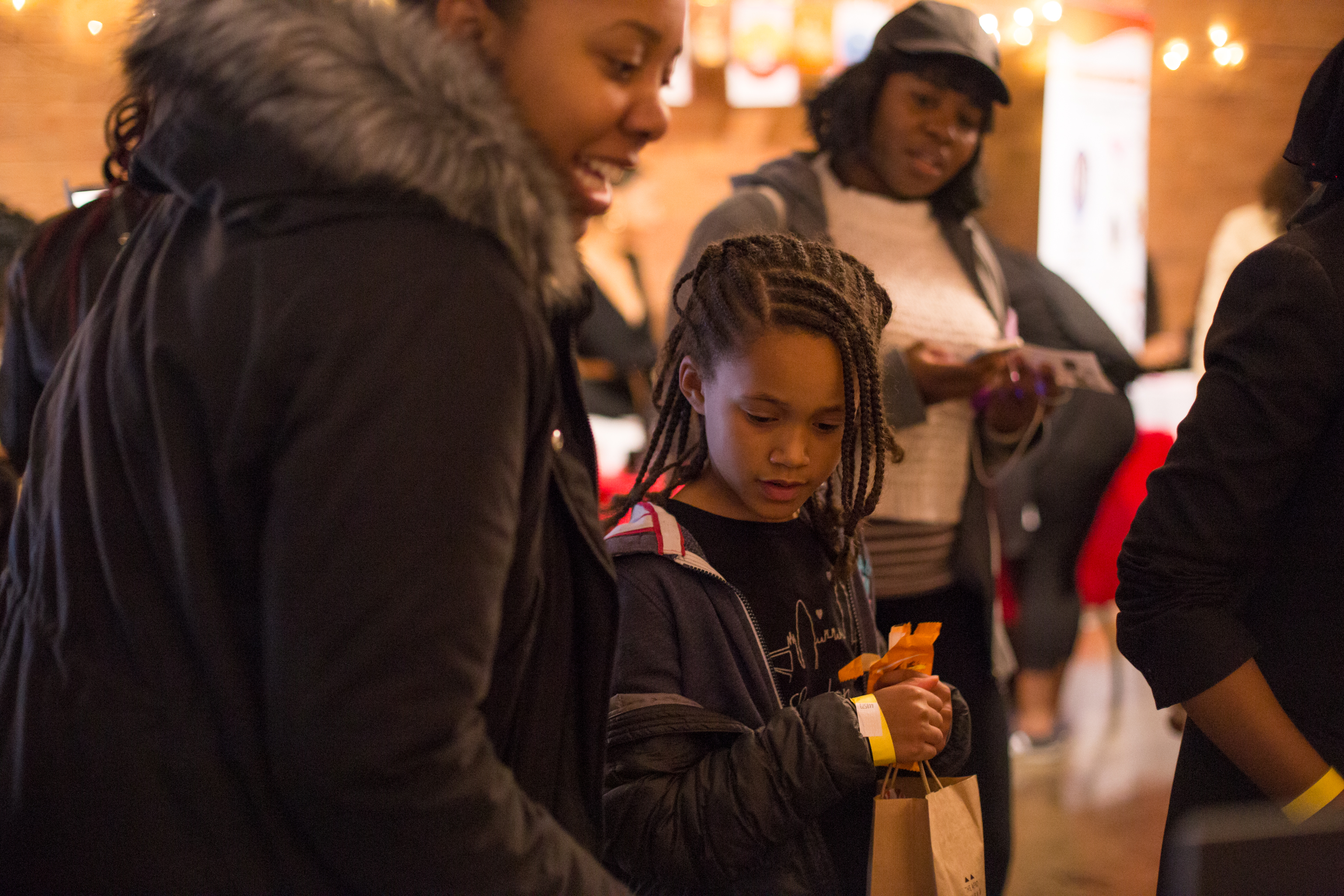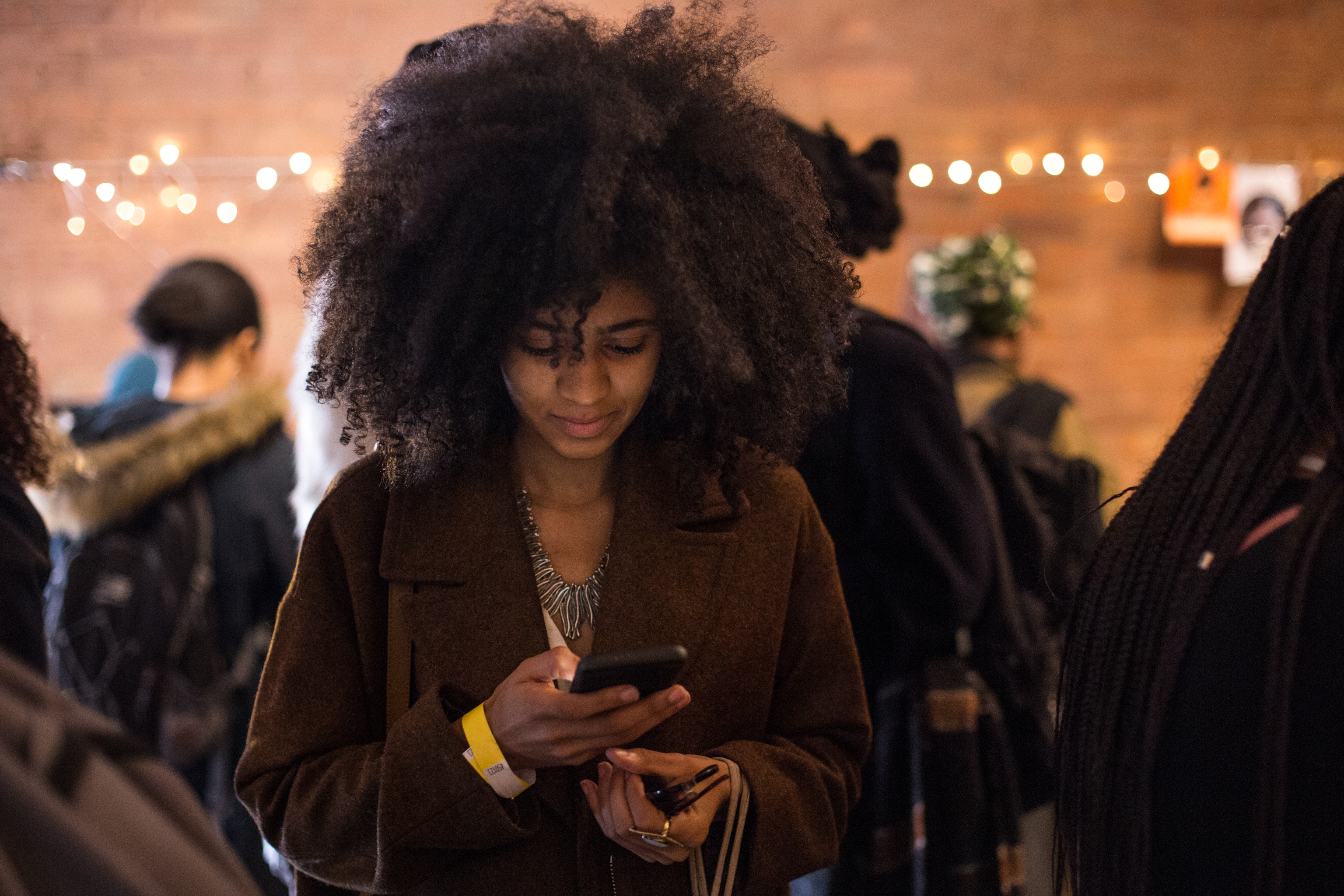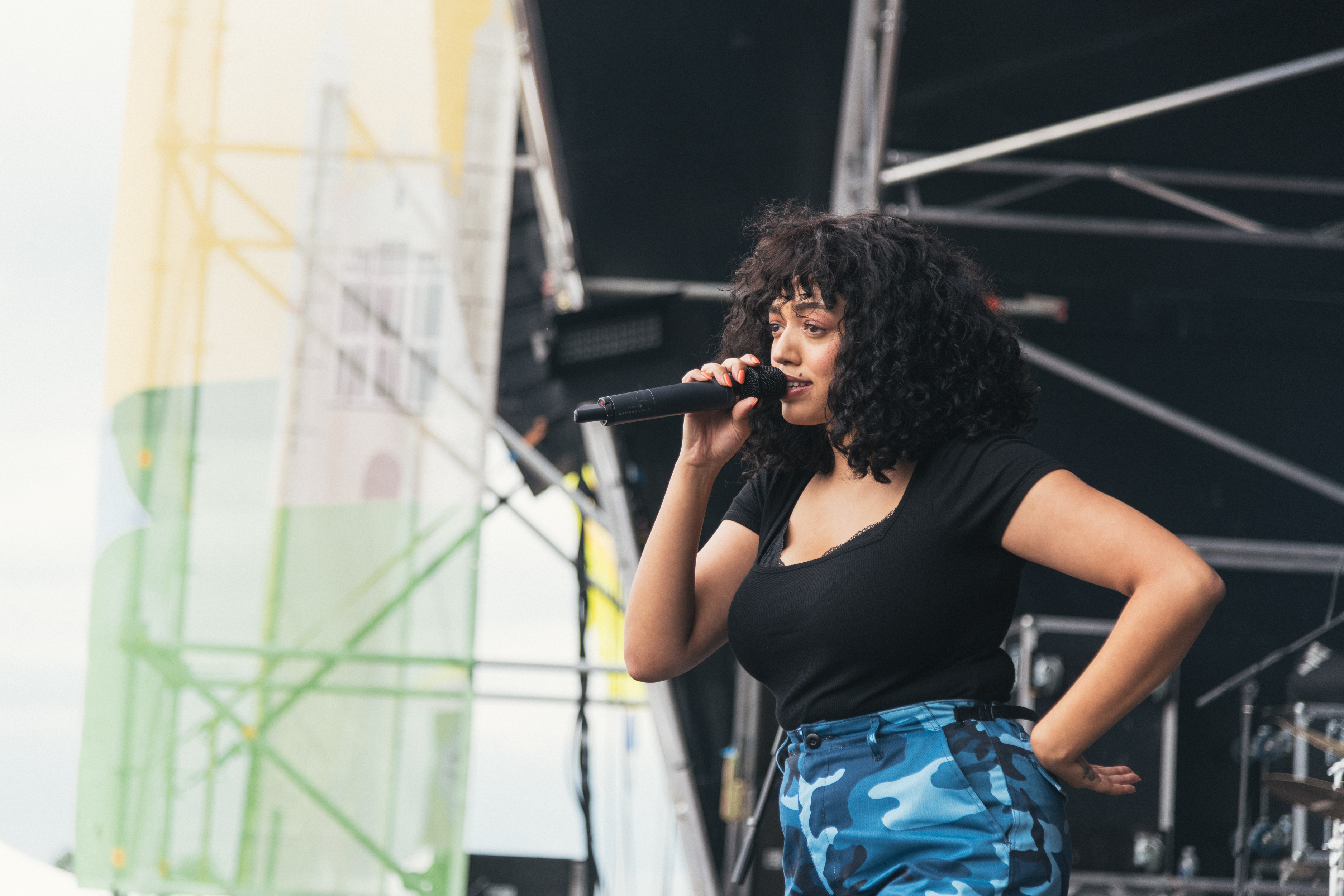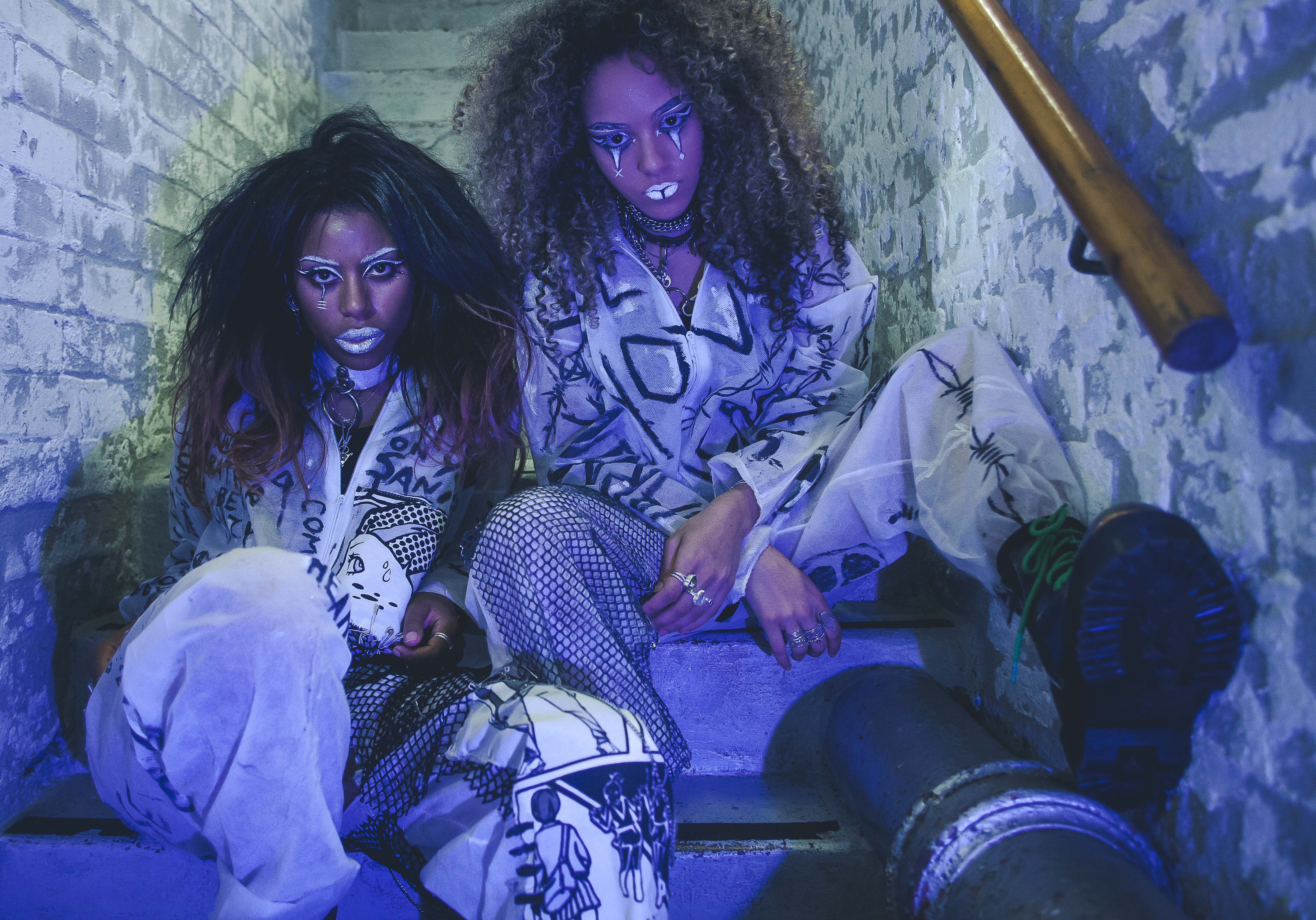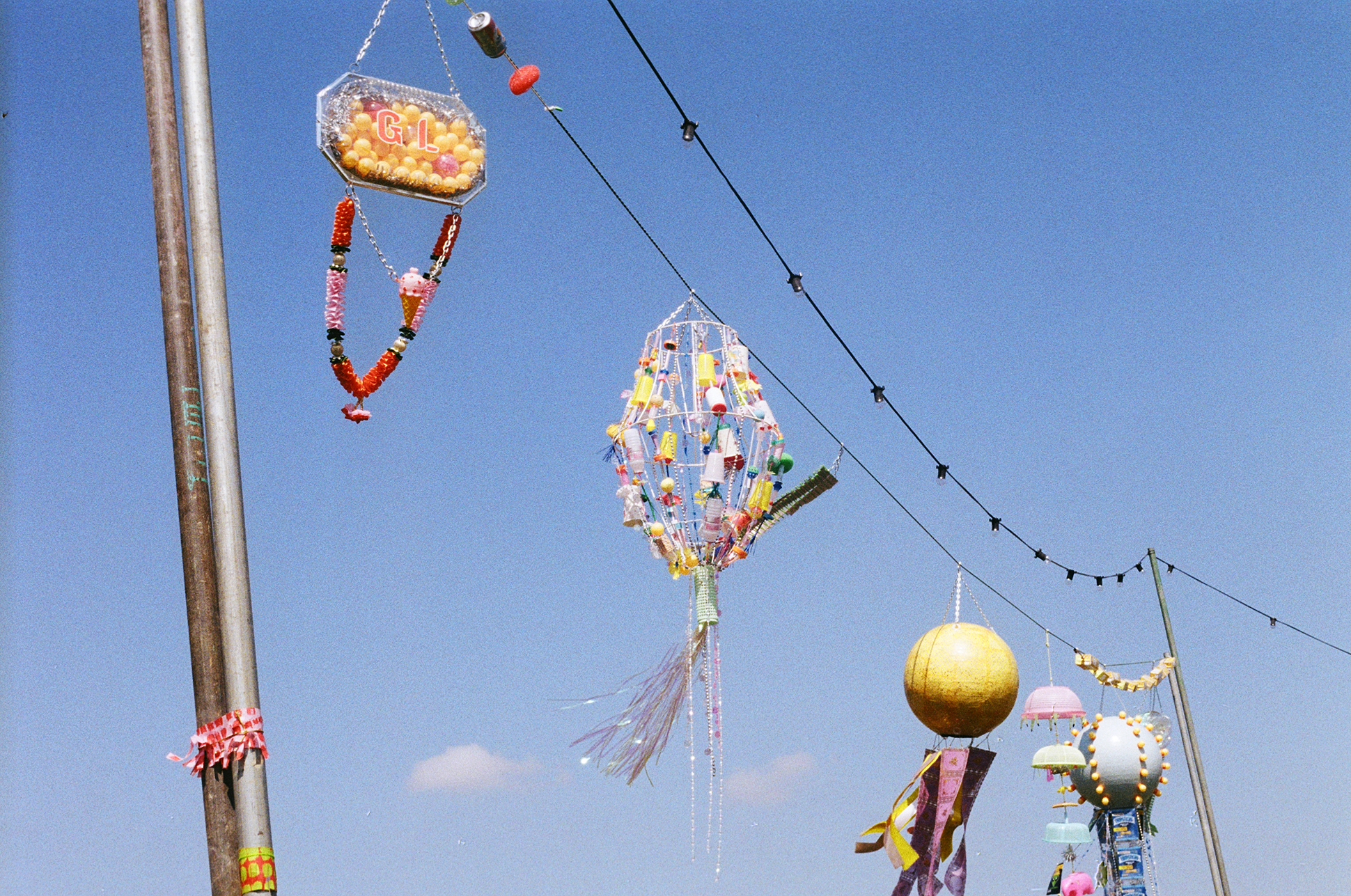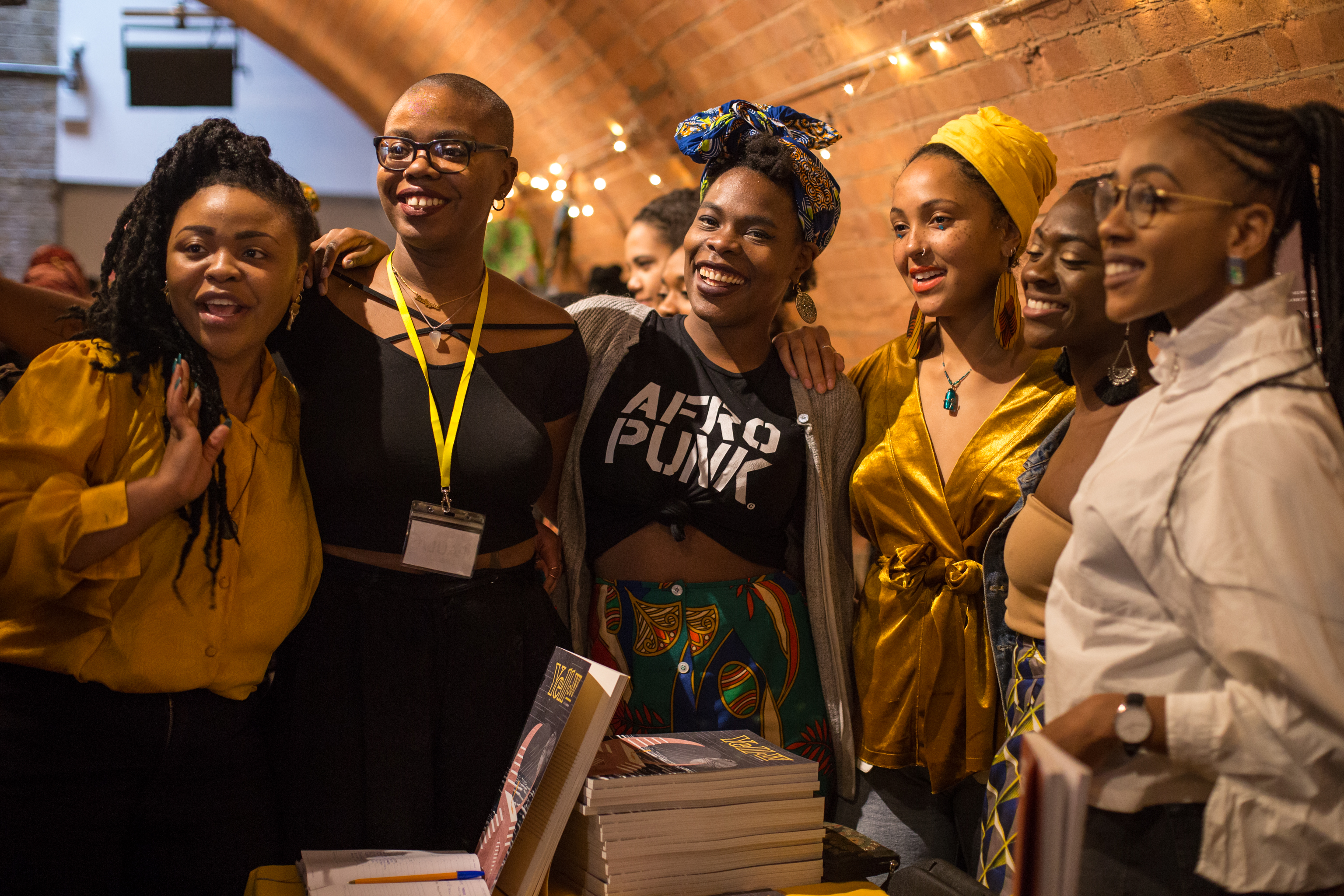
“I feel like I’m floating,” the girl next to me said when I asked how she was finding the UK’s first Black Girl Festival. I related.
At the Black Girl Festival, surrounded by hundreds of beautiful black women and girls, I soaked up the uniqueness of the event; it was a physical space where I could simply fit in, mingle, and absorb the atmosphere.
Set up by Paula Akpan and Nicole Crentsil, who “saw the lack of visibility for black women doing amazing things”, and following a successful crowdfunding campaign, the event was scheduled for 29 October in London, and described as a festival for all black women and girls. Seeing this, I invited my aunt and younger cousins to come along with me – I was interested to see how a single event could cater to different generations and perspectives, through the celebration of being both black and a woman.
We arrived at midday and were immediately taken aback by the sheer number of people crowded into the marketplace area of the festival. The design and vibe of the venue were flawless – fairy-lights glowed along the walls, familiar black artists greeted us like old friends via the sound-system (SZA, Jamila Woods, Lianne La Havas and the like), and laughter and chattering filled the air as we made our way through the space. There was a moment when Lauryn Hill’s ‘Doo-Wop’ came on, and the entire room broke into song.
“There was a moment when Lauryn Hill’s ‘Doo-Wop’ came on, and the entire room broke into song”
The marketplace comprised of dozens of colourful stalls run by black women, selling everything from artsy prints to afro hair products, to magazines on black love and feminism, to children’s toys. My youngest cousin was instantly drawn to the bold gold-plated jewellery and distinctive red and black snake patches by Image Gang. I loved the illustrations and brooches sold by Dorcas Creates, depicting quirky designs of women with huge afros and sleek styles.
The entrepreneurs were all creative and approachable women, many of whom had set up their businesses in the past year or so. For my little cousins, this was the first time they had been surrounded by so many black women – women who look similar to them; and women creating products in sync with their cultures and passions.
A lot of people I spoke to expressed that they had spent more money than intended (the ATM nearby actually ran out of cash), but acknowledged that it was for the absolute best cause – supporting black women who had taken the risk to start their own businesses and create culture and designs for us all.
The marketplace also created a space for attendees to see ourselves in the products they bought. I met a British-Eritrean woman who said the Children’s Author Corner, led by @celishabooks and co, actually brought a tear to her eye. I asked why – it turned out the illustrations on the cover of The Butterfly Princesses by Rachel Beckles showed a princess dressed in the traditional dress of her home country – something she had never seen before.
Alongside the marketplace, the festival featured food stalls serving various African dishes, and a series of panel discussions. I luckily managed to book one of the panel discussions (they quickly sold out online): “Women in Media”. The program also included sessions on mental health and self-care, black motherhood, and zine-making, amongst many others.
“For my little cousins, this was the first time they had been surrounded by so many black women”
I’m so used to going to panel events where the audience is a sea of white, and the discussions are academic and bland. Yet here I finally was, in a room with well over 100 black women, ready to get inspired.
I was particularly drawn to Kelechi Okafor, founder of @kelechnekoff_studio and self-described “professional baby girl”. She told us the story of how she set up her own pole-dancing school, where 90 percent of the participants are black women. “I don’t believe in ‘try’,” she said. “If you’re scared to do something, then it means something to you. Just do it.”
The panel discussion was full of sparks, jokes, laughter, wise words and honest reflections. The panelists discussed how to be your own hype man, how to build a supportive community around yourself, and how to bypass traditional gatekeepers by creating your own content. “The gatekeepers are watching us.” Writer/activist/poet Siana Bangura’s main piece of advice – “your voice matters” – rang true throughout in the room. I left feeling inspired.
Buzzed, drained, and accompanied by my little cousins, we ventured home before the night events started. From Twitter, I know that the bar opened, and live music and poetry filled the final hours of the night.
“We have this festival because we want a sense of belonging,” Kelechi said. Queues to enter the event stretched to two-hours by the end. Black women and girls had turned up in the thousands on a cold Sunday evening. The marketplace was bustling at all times, the music loud, hairstyles on point, voices interweaving, new connections made. The turn-out proves that events like Black Girl Festival are desperately needed in the UK.
As a black British woman who loves creativity, the arts, music and chatting with my girlfriends, it was so great to be in a space that catered to all of the above and more. It is evident that the Black Girl Festival is here to stay, and might need a bigger venue next year to meet a clear demand for us all – a space to belong.

